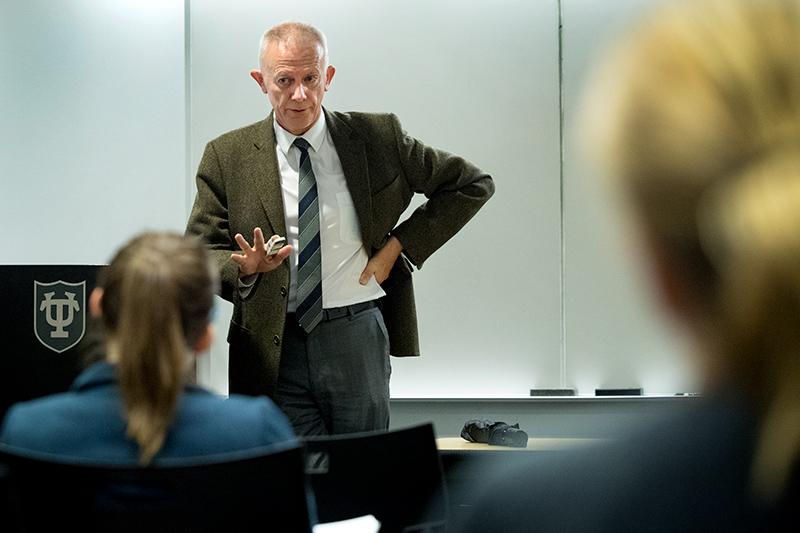Historian uncovers reality of male rape during times of war
Ray Douglas, a World War II historian and professor of history at Colgate University, explained during a talk on the uptown campus that “there is only recent knowledge that sexual assault is a thing.” For male victims of rape, however, Douglas said that the work of historians is essential to helping shed light on the mere existence of a problem.
“There is a lack of data on male rape, but there are a few things that we know for sure,” said Douglas. “The first of those things is the fact that where we look for it, we find it.”
Hosted by the Newcomb College Institute, Douglas gave two lectures on Monday, Oct. 9. The first was a discussion of his research on sex crimes against men during times of war and the second on his book On Being Raped, which is a memoir about his own assault as a teenager by his parish priest.
“I’m not aware of any major conflict including both world wars where you will not find examples of sex violence against men and boys in quite substantial numbers.”
Ray Douglas
“It would be surprising if the sexual violence against men and boys were to follow a completely different trajectory than that of sex crimes against women and girls,” said Douglas. “But this is what we are working steadily to uncover.”
Douglas told the audience of aspiring historians in his research lecture that he was required to think outside of the box when searching for existing literature and records on sex crimes against males. While many answers are available as they relate to female victims, for the little research available on male victims he had to search topics such as unnatural offenses, abnormal psychology and torture of detainees.
“I’m not aware of any major conflict including both world wars where you will not find examples of sex violence against men and boys in quite substantial numbers,” said Douglas. “The information is certainly not low-hanging fruit.”
In his evening lecture, which drew a full crowd to the Anna Many Lounge in the Caroline Richardson Building, Douglas’ talk covered the topic “What We Get Wrong About Male Rape.”
“We obsess about the perp: we micro-study the perp, we conduct surveys, we write books on the perp, but is it necessary?” asked Douglas. “Yes, absolutely. But not to the exclusion of the victim, who all too often gets written out of the story.”
Like this article? Keep reading: Correcting misconceptions about male rape

